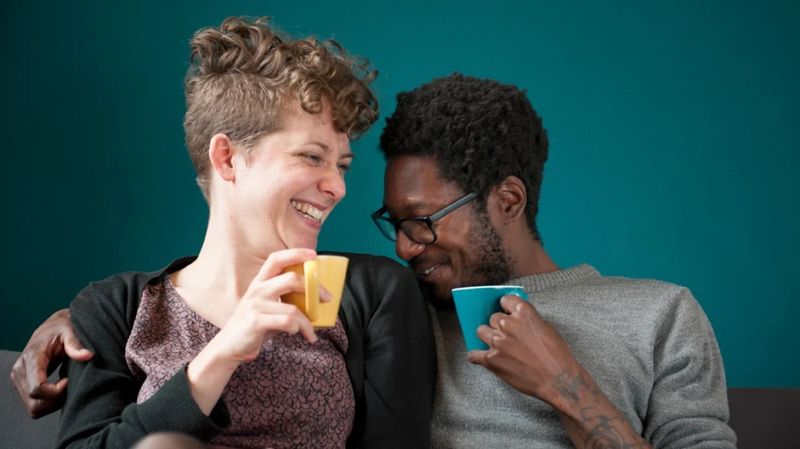19 Questions To Consider Before Saying “I Do”
Marriage is more than a celebration or a legal contract—it’s a lifelong partnership. And before you say “I do,” it’s worth checking in with yourself, heart and mind. Are you truly ready for what comes after the wedding cake and honeymoon?
These 19 questions aren’t meant to scare you—they’re here to guide you. They’ll help you explore what you want, what you need, and how aligned you and your partner really are.
From communication styles to core values, financial habits to future goals, asking the right questions now can save you from confusion, resentment, or heartbreak later on.
Whether you’re newly engaged, thinking about proposing, or just wondering if your relationship is built to last, take a moment to reflect. Because when it comes to lifelong commitment, love is just the beginning—clarity, compatibility, and self-awareness carry you the rest of the way.
1. Do I feel safe—emotionally, mentally, and physically—with this person?

Love should never come with fear. Safety is the foundation, not the bonus. Like being with someone where you don’t have to guard your heart or second-guess your words. It’s about feeling secure in every hug, every glance, and every conversation.
The right partner is like a cozy blanket on a cold night—they make everything feel right and safe. If you’ve ever had a moment of doubt about how safe you feel, that’s worth exploring.
Ask yourself if you can be vulnerable without the fear of judgment. If the answer is yes, that’s a powerful foundation for saying “I do.”
2. Can we talk about hard things without shutting down or blowing up?

Conflict is inevitable. The way you handle it says everything. Picture this: a disagreement doesn’t spiral into a shouting match or silent treatment. Instead, it becomes a pathway to understanding each other even better.
Navigating tough conversations with grace is like mastering an art. It’s about listening as much as speaking, and knowing when to give space. If you can tackle disagreements together without losing respect, that’s a huge win.
Communication is key, but the quality of that communication is where the magic lies. Check if your discussions lead to growth or resentment.
3. Do we respect each other’s boundaries—and communicate our own?

Healthy love has limits. Without them, resentment builds quietly. Imagine being in a relationship where you both understand and honor each other’s personal space and needs.
Boundaries aren’t about building walls; they’re about creating a safe space for both partners to thrive. If you can share your boundaries without fear and respect your partner’s without feeling threatened, that’s golden.
The ability to communicate boundaries openly and accept them speaks volumes about mutual respect. It’s like having a compass to guide your love journey.
4. Do I feel heard and understood, even when we disagree?

You don’t have to agree on everything—but you should feel seen. Imagine sitting together, discussing dreams or dilemmas, and feeling truly understood.
It’s about more than just hearing words; it’s about connecting with feelings. If you find yourself nodding along, knowing your partner really gets you, that’s a precious gift.
Disagreements are natural, but feeling unheard shouldn’t be. A relationship where both voices matter is a treasure worth holding onto.
5. Do we both take responsibility for our actions—or does one person always end up apologizing?

Mutual accountability is emotional maturity in action. It’s a relationship where apologies aren’t weapons but bridges to understanding.
When both partners can hold themselves accountable, it creates a balanced and nurturing environment. It’s about owning up, not shifting blame. If one person often finds themselves saying sorry, it might be time to reassess.
Taking responsibility shouldn’t feel like a chore; it’s a step toward a healthier relationship. Check if your relationship has room for mutual growth.
6. Are our long-term goals aligned?

Kids, career, money, location—these aren’t small things. Don’t wait until after the vows to discover major differences.
Imagine dreaming together, with visions that complement instead of clash. If your long-term goals are aligned, it’s like having a road map for life’s adventures together.
Alignment doesn’t mean identical dreams, but it does mean being able to support each other’s paths. If you can envision a future together without major detours, you’re on a great track.
7. Do I like who I am in this relationship?

Are you growing, softening, expanding? Or shrinking and second-guessing? Consider how this relationship impacts your sense of self.
The right partner should be a mirror reflecting back your best qualities, not casting shadows over your light. If you find yourself thriving, feeling more you, that’s a wonderful sign.
A relationship should feel like an embrace around your true self, not a constricting bind. Reflect on how you’ve changed since being together, and if those changes feel right.
8. Have we seen each other at our worst—and still shown up with love?

The “best version” of someone is easy to love. It’s the hard days that reveal what kind of partner you really have.
And then there are those vulnerable moments—when everything feels like it’s falling apart—yet your partner’s love doesn’t waver. That’s the kind of bond that withstands life’s storms.
Real love doesn’t falter at the sight of flaws; it holds steady and offers comfort. If you can support each other through the worst, you’re building a relationship that lasts.
9. Do we work well as a team?

When life gets chaotic—can you count on each other? Or do things fall apart? Picture a relationship where teamwork isn’t just a concept but a practice.
It’s about being partners in every sense, where you both contribute, support, and lift each other up. If your teamwork feels effortless, like a dance, that’s a solid foundation.
Life will throw challenges your way, but with good teamwork, you can turn obstacles into stepping stones. Reflect on how you tackle everyday tasks and big challenges together.
10. Have we talked openly about money, spending habits, and financial goals?

Finances aren’t just practical—they’re emotional. And misalignment here causes serious tension.
What if money talks didn’t come with tension—but with trust and understanding instead? It’s about transparency, understanding, and shared responsibility. If you can align financially, it’s like having a safety net for your relationship.
Financial discussions should be open, honest, and judgment-free. If you can talk dollars and cents without losing sense of love, that’s a win.
11. Can we laugh together—really laugh?

Laughter heals, bonds, and helps you survive the stressful seasons. Picture moments filled with genuine laughter, where your shared humor becomes a glue that holds you together.
Laughter is more than just fun; it’s a sign of true connection. If you can laugh at the little things and find joy in each other’s company, your relationship is richer for it.
Humor adds resilience, turning potential conflicts into playful banter. Ask yourself if your relationship has enough laughter to weather life’s storms.
12. Do we support each other’s growth, even when it’s uncomfortable?

Love isn’t ownership. Can you both evolve without guilt or fear? Imagine a relationship where you’re both cheerleaders in each other’s growth journeys.
Support means being there for each other, even when the path gets rocky. If you can encourage each other’s dreams and ambitions, that’s a partnership that flourishes.
Growth can be uncomfortable, but with mutual support, it becomes an adventure rather than a threat. Reflect on how you navigate personal growth within your relationship.
13. Are there any red flags I’m still hoping will “change” after marriage?

Spoiler: marriage magnifies patterns—it doesn’t fix them. Consider if there are habits or behaviors you’re overlooking, hoping they’ll change post-marriage.
Red flags are those nagging doubts that often whisper instead of shout. Ignoring them now can lead to louder regrets later. If you’re wishing for change rather than accepting reality, take a pause.
Marriage should be about embracing your partner as they are, not as you hope they’ll become. Reflect on those red flags and if they’re deal breakers or not.
14. How do we each handle family dynamics, holidays, and traditions?

What seems “normal” to one person can feel overwhelming to another. Talk about it now.
Family dynamics can be tricky, but understanding each other’s backgrounds and traditions is key. It’s about finding a balance where both your family’s practices are honored.
Holidays and traditions are more than just events; they’re about shared values. If you can navigate these without conflict, it’s a sign of a healthy relationship. Discuss these aspects openly to avoid surprises later.
15. Can we sit in silence together—and still feel connected?

True intimacy isn’t always loud. Comfort in stillness matters more than constant stimulation. Picture being able to just be, without the need to fill every moment with conversation.
Silence can be as telling as words. If you can sit together in quiet and still feel connected, that’s a unique bond.
It’s about the absence of pressure and the presence of peace. Reflect on whether your silent moments are as fulfilling as your conversations.
16. If nothing changed—would I still want this person for life?

Don’t marry potential. Marry reality. Can you accept who they are right now? Would that still feel like a future you’d be excited to live in?
Love isn’t about transforming someone; it’s about cherishing who they are. If you’re content with the present version of your partner, that’s a positive sign.
Acceptance builds a strong foundation. Reflect on your expectations and if they align with the reality of your relationship.
17. Am I saying “I do” out of love—or out of fear, pressure, or timeline expectations?

Make sure it’s your heart speaking—not your age, your parents, or your social circle. Picture a decision that’s purely yours, free from outside pressure.
Marriage should be about love, not a checklist. If you find yourself rushing due to timelines or expectations, pause and evaluate.
Your “I do” should come from a place of genuine desire, not external pressures. Reflect on your motivations and ensure they’re true to your heart.
18. Do We Share Core Values?

Values are the compass guiding a relationship. Do your core beliefs align? Imagine planning a future rooted in shared values, like honesty and kindness. Such alignment ensures harmony.
Consider discussing your stance on family, career, and life goals. Conversations about values reveal compatibility. For instance, if one prioritizes career progression while the other values family time, how will decisions be made?
A foundation built on shared values fosters resilience, especially during challenging times. Aligning values isn’t just about agreement; it’s about understanding and respecting differences, crafting a shared vision for the future together.
19. How Do We Resolve Conflicts?

Every couple faces disagreements. The key is resolving them constructively. How do you approach conflicts? Healthy conflict resolution involves listening and empathy. Couples who master this art build enduring partnerships, resilient against life’s storms.
Imagine a disagreement about finances. Do you both listen, avoid blame, and seek solutions? Constructive dialogue can turn conflicts into growth opportunities. Embrace conflict as a path to deeper understanding and connection.
Reflect on past disagreements. Were they resolved with mutual respect? Learning to navigate conflicts without escalating tensions strengthens trust and intimacy. It’s not about avoiding conflicts but managing them wisely.






